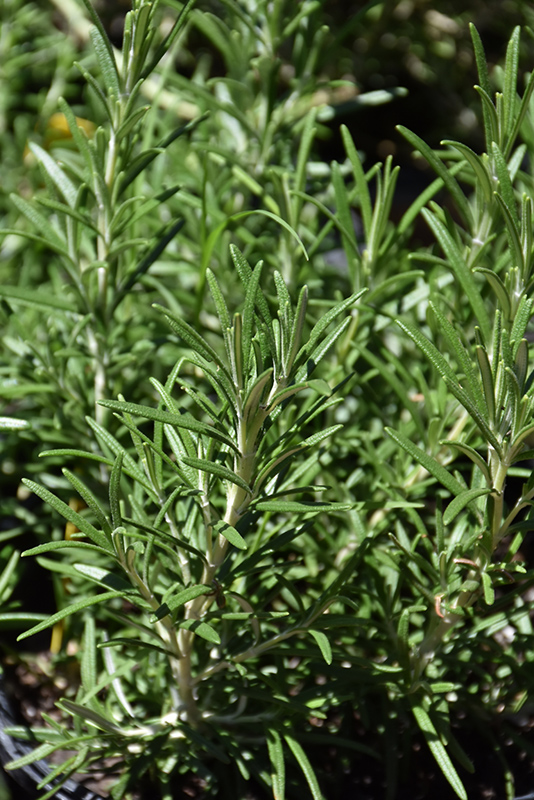Hill Hardy Rosemary
Rosmarinus officinalis 'Hill Hardy'
Height: 4 feet
Spacing: 24 inches
Sunlight:
![]()
![]()
Hardiness Zone: 6a
Description:
A highly aromatic, cold-hardy variety with narrow dark green needle-like foliage; a well loved culinary selection, great for enhancing meat and vegetable dishes, as well as dressings and sauces; lovely as a border or in a large patio container
Edible Qualities
Hill Hardy Rosemary is a woody herb that is commonly grown for its edible qualities, although it does have ornamental merits as well. The fragrant dark green needle-like leaves are usually harvested from early summer to early fall. The leaves have a savory taste and a distinctive fragrance.
The leaves are most often used in the following ways:
- Eating When Cooked/Prepared
- Cooking
- Drying
- Seasoning
Features & Attributes
Hill Hardy Rosemary features dainty spikes of lightly-scented blue flowers at the ends of the branches from late spring to mid summer. It has attractive dark green evergreen foliage. The fragrant needles are highly ornamental and remain dark green throughout the winter.
This is a dense multi-stemmed evergreen woody herb with an upright spreading habit of growth. Its relatively fine texture sets it apart from other landscape plants with less refined foliage. This plant will require occasional maintenance and upkeep, and is best cleaned up in early spring before it resumes active growth for the season. It is a good choice for attracting bees, butterflies and hummingbirds to your yard, but is not particularly attractive to deer who tend to leave it alone in favor of tastier treats. It has no significant negative characteristics.
Aside from its primary use as an edible, Hill Hardy Rosemary is sutiable for the following landscape applications;
- Mass Planting
- Hedges/Screening
- General Garden Use
- Topiary
- Herb Gardens
- Container Planting
Planting & Growing
Hill Hardy Rosemary will grow to be about 4 feet tall at maturity, with a spread of 3 feet. When grown in masses or used as a bedding plant, individual plants should be spaced approximately 24 inches apart. It has a low canopy. It grows at a slow rate, and under ideal conditions can be expected to live for approximately 10 years.
This woody herb is quite ornamental as well as edible, and is as much at home in a landscape or flower garden as it is in a designated herb garden. It does best in full sun to partial shade. It is very adaptable to both dry and moist growing conditions, but will not tolerate any standing water. It may require supplemental watering during periods of drought or extended heat. It is not particular as to soil type or pH. It is highly tolerant of urban pollution and will even thrive in inner city environments. Consider applying a thick mulch around the root zone in winter to protect it in exposed locations or colder microclimates. This is a selected variety of a species not originally from North America.
Hill Hardy Rosemary is a good choice for the edible garden, but it is also well-suited for use in outdoor pots and containers. With its upright habit of growth, it is best suited for use as a 'thriller' in the 'spiller-thriller-filler' container combination; plant it near the center of the pot, surrounded by smaller plants and those that spill over the edges. It is even sizeable enough that it can be grown alone in a suitable container. Note that when grown in a container, it may not perform exactly as indicated on the tag - this is to be expected. Also note that when growing plants in outdoor containers and baskets, they may require more frequent waterings than they would in the yard or garden.

